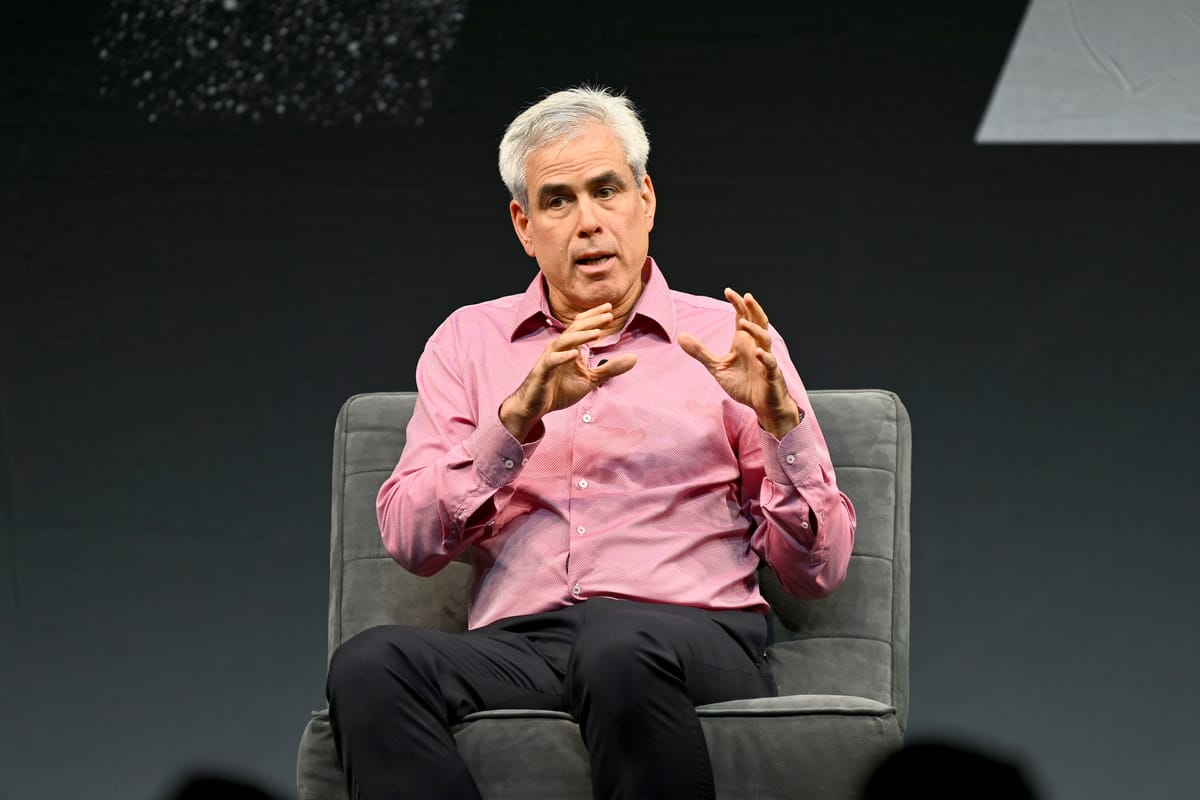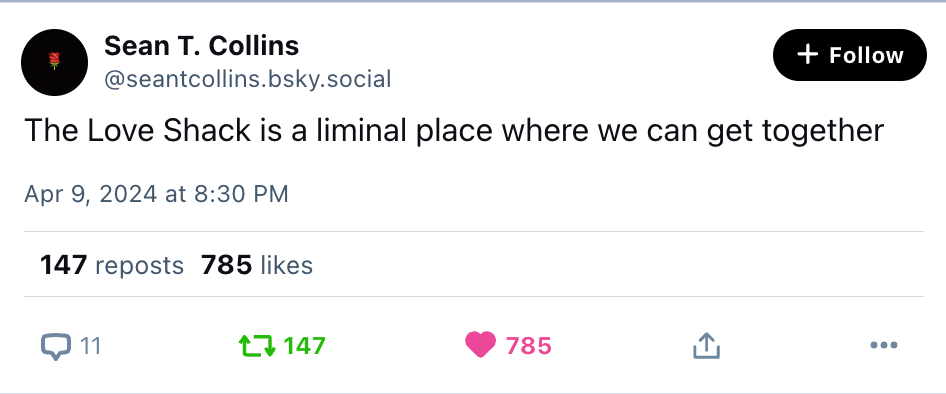|
Jonathan Haidt wrote a best-selling book about teens and social media. Not everyone buys its thesis
Here's this week's free edition of Platformer: a look at the debate over Jonathan Haidt's popular new book The Anxious Generation. His argument is clearly resonating with lots of people, but we spoke with researchers who caution against buying the book's thesis wholesale. Do you value the sort of work we do around here? If so, consider upgrading your subscription today. We'll email you all our scoops first, and you'll be able to discuss each today's edition with us in our chatty Discord server.
I. For the last week, the top non-fiction book on the New York Times bestseller list has been The Anxious Generation, by Jonathan Haidt. In it, Haidt makes a compelling case that the use of smartphones and social media have caused a mental health crisis for teens. “Once young people began carrying the entire internet in their pockets, available to them day and night, it altered their daily experiences and developmental pathways across the board,” Haidt writes. Later, he adds: “[T]he new phone-based childhood that took shape roughly 12 years ago is making young people sick and blocking their progress to flourishing in adulthood.” Since the book’s arrival, however, a growing chorus of researchers have loudly critiqued Haidt’s central thesis. On March 29, Candice L. Odgers, a psychology professor at UC Irvine, published one such assessment in Nature. “[T]he book’s repeated suggestion that digital technologies are rewiring our children’s brains and causing an epidemic of mental illness is not supported by science,” she writes. “Worse, the bold proposal that social media is to blame might distract us from effectively responding to the real causes of the current mental-health crisis in young people.” So, which viewpoint is best supported by the available evidence? Reading through the dozens of papers on the subject, and the discourse surrounding them, can bewilder even the most patient observer. On one hand, Haidt’s argument will resonate with anyone who has ever struggled with the feeling that they can’t stop looking at their phones. I feel bad when I scroll for too long, and refreshed when I put it down and go outside. The same holds true for most people I know. And as a mother, I’m concerned about the impact that these technologies will have on my kids. On the other hand, data on this issue is mixed, and some studies contradict one another. Haidt pulls from a dizzying array of studies to make his point. But some academics question the methodologies and rigor behind some of the research — and suggest Haidt has drawn overbroad conclusions from conflicting data. Odgers did not respond to interview requests from Platformer. But Andrew Przybylski, a professor of human behavior and technology at the University of Oxford, says this looks a lot like “vote counting,” and argues Haidt’s focused on quantity over quality. (We wrote about a recent study he co-authored, which found that Facebook usage had no measurable effect on global well-being, in August.) “It doesn't matter if there's 19 studies in one direction and three in another, if those three studies are done well and have a large number of participants,” Przybylski said in an interview. “Extraordinary claims require extraordinary evidence. Right now, I’d argue he doesn’t have that.” II. Each piece of the debate over whether and how social media affects teens (and adults) could merit a blog post of its own — and Haidt himself is a formidable blogger, with he and his fellow researchers publishing nearly a dozen posts this year weighing in various facets of the discourse. (He politely declined an interview today.) While researchers largely agree that there is a mental health crisis among young people in the United States, the cause of the crisis — and whether it's unique to Gen Z — is contested. “If anything, the mental health of older adults in the US is far worse,” Christopher Ferguson, a psychology professor at Stetson University, told Platformer in an email. “Middle aged white men are three to five times more likely to kill themselves than are teen girls. There's just no evidence for the common but largely mythical idea that somehow young people are more vulnerable to media effects than are adults.”
Zach Rausch, Haidt’s lead researcher on the Anxious Generation, wrote a strong rebuttal to critics like Ferguson, laying out the evidence supporting the book’s thesis. He argues that while suicide rates for teen girls are low compared to other demographics, any uptick should be cause for concern. “My point is this: if we dismiss rises in teen girls' suicide rates because they are ‘low’ and then do not account for other — more common — mental health problems among teen girls because the measures are imprecise, then when exactly should we start paying attention?” After analyzing arguments on all sides, here are three questions that stuck with me. - Is there really a causal link between social media usage and mental illness in teens?
In his book, Haidt cites the work of psychologist Jean Twenge, noting that “teens who spend more time using social media are more likely to suffer from depression, anxiety, and other disorders, while teens who spend more time with groups of young people (such as playing team sports or participating in religious communities) have better mental health.”
Odgers counters: “Hundreds of researchers, myself included, have searched for the kind of large effects suggested by Haidt. Our efforts have produced a mix of no, small and mixed associations. Most data are correlative.” This week, Haidt published a rebuttal to Odgers, arguing he has shown evidence of causation.
To understand how these academics come to such vastly different conclusions, I spoke with Przybylski, who tried to reproduce some of Twenge’s findings on the link between screen time and well being.
Przybylski and his team analyzed the relevant data thousands of different ways. In his view, Twenge may have chosen the analysis that makes the link between screen time and well-being look as negative as possible.
“The average correlation between screen time and well-being was analogous to the correlation between wearing glasses and well being — it might just be a rounding error,” he said. - Does screen time really have a negative impact on sleep?
In an excerpt in The Atlantic, Haidt writes: “The amount of time that adolescents spend sleeping declined in the early 2010s, and many studies tie sleep loss directly to the use of devices around bedtime, particularly when they’re used to scroll through social media.”
But the data on screen time and mental health is inconclusive, according to Peter Etchells, a professor of psychology and science communication at Bath Spa University. “Research which attempts to understand the links between screen time and mental health is so fraught with methodological problems and statistical limitations that we simply don’t have anything near the sort of convincing evidence base necessary to come to firm conclusions about cause and effect,” he writes in Unlocked, his book on the science of screen time. Przybylski adds that the link between decreasing screen time and increasing well being is even weaker.
A study in South Korea found that blocking access to online games for people under the age of 16 late at night only resulted in 1.5 minutes of extra sleep.
My own personal experience with this point is so overwhelming that I find it difficult to assess the issue objectively. I turn my phone off after work, otherwise it does seem to disrupt my sleep. To Przybylski and others, this is part of the problem — many of us rely too much on anecdotal evidence and fail to look at the evidence. - Is there evidence to support Haidt’s proposed solutions?
To address the teen mental health crisis, Haidt proposes four changes that he believes to break what he calls “collective action traps”: no smartphones before high school, no social media before the age of 16, phone-free schools, and increased amounts of independent play and responsibility in the real world.
Przybylski says there’s no evidence to support his first two points. “Not only is this not supported by evidence, but it could backfire,” he says. “Nothing magic happens to you when you turn 14 and get your first phone. As a parent, you still have to have these tough conversations with your kids about responsible usage, and, honestly, it’s easier to get a 10-year-old to do something than a 14-year-old.”
Ferguson agreed, and added in an email that while Haidt’s third proposal sounds intuitive, “there's no empirical evidence this is actually helpful.” He added: “Number four is fine though :)”
III. I had hoped that reading deeply into the teens and social media debate, along with speaking to some of the researchers involved, would leave me with a clear sense of the role that screen time plays in mental health. Instead, it mostly left me unsatisfied. As technology reporter Charlie Warzel put it on Threads: “There are lots of reasons Haidt's stuff is resonating (there's a lot of parents who are understandably weirded out by the way their kids get hooked into devices). There seems to be a lot of contested social science, too, that may be unproductively scaring people without being conclusive! But I think the bigger thing is it touches on a gut feeling we all have: so much has changed technologically in a short [amount] of time! We know this connectivity is working on us, but it's hard to pin down exactly how.” In the end, I buy the argument that this issue is more complicated than the more simplistic readings of Haidt’s thesis. He wrote a popular science book, after all, and it should surprise us that some researchers object to the conclusions he has drawn. At the same time, we shouldn’t set aside the lived experiences of so many everyday smartphone users. For many of us, constant connectivity feels bad, and doomscrolling can heighten feelings of anxiety and depression. Meanwhile, getting outside and spending time with loved ones face to face can be the antidote to despair. I’m sympathetic to researchers who call attention to that dynamic, even if disputes remain about which claims are grounded in unassailable evidence. Etchells says he fears that the current moral panic around technology will lead to bad policy outcomes. “I think everyone in this debate wants to do right by kids,” he told me. “My worry is that if we rush to develop policy based on poor research results, we end up with bans or regulations that, on day one, look like they’ve done a good job and we can all pat ourselves on the back for. But in the long run, they create more problems than they solve.” Haidt argues that waiting for stronger evidence could be even more dangerous. He writes: “If you listen to the alarm ringers and we turn out to be wrong, the costs are minimal and reversible. But if you listen to the skeptics and they turn out to be wrong, the costs are much larger and harder to reverse.” I understand that argument might not be compelling to researchers who are focused on the data. But as a mother, as someone who writes about the harms of tech and tech companies, I see his point.
On the podcast this week: Kevin and I talk about all the sneaky ways tech platforms are slurping up data for their large language models, Then, J. Trevor Hughes of the International Association of Privacy Professionals stops by to explain the surprise data privacy bill that was introduced into Congress this week. And finally, we discuss the case of the missing TikTok ban. Apple | Spotify | Stitcher | Amazon | Google | YouTube
Governing
Industry- ByteDance’s profit reportedly surged about 60 percent in 2023, outgrowing its rivals Tencent and Alibaba. (Zheping Huang and Min Jeong Lee / Bloomberg)
- ByteDance has reportedly extended its share buy-back program to non-US employees, offering to purchase shares for $171 each. (Tabby Kinder, Hannah Murphy and Eleanor Olcott / Financial Times)
- Taylor Swift’s songs are back on TikTok, after Universal Music Group pulled them in February. It seems that Swift might have made a deal with TikTok without the record label; her new album lands next week. (Todd Spangler and Jem Aswad / Variety)
- TikTok is reportedly in talks with advertisers about a feature that would generate AI "influencers" to read AI-generated ads. Sure, why not. (Erin Woo, Jing Yang and Juro Osawa / The Information)
- X is automatically changing mentions of “Twitter.com” to “X.com”, raising concerns about phishing and broken URLs. (Matt Binder / Mashable)
- OpenAI reportedly fired two researchers for allegdly leaked information, including an employee who focused on AI safety and was an ally of chief scientist Ilya Sutskever. Among other things, this move would seem to shrink the size of the company's superalignment team. (Erin Woo and Stephanie Palazzolo / The Information)
- Marketers are reporting problems with Meta’s advertising system, including glitches and higher prices. (Kurt Wagner / Bloomberg)
- Meta’s new MTIA chip, which works best with its ranking and recommendation models, could be upgraded to train generative AI models, the company says. (Emilia David / The Verge)
- Google Cloud and healthcare provider Bayer are partnering to build an AI platform to help radiologists diagnose patients and work cases quickly. (Ashley Capoot / CNBC)
- Google is also partnering with WPP, the world’s largest advertising group, which means brands like Coca-Cola and L’Oréal could soon have ads generated by Gemini. (Nicola Agius / Search Engine Land)
- Google Photos users will now get enhanced editing features, including Magic Editor and Magic Eraser, for free. (Sarah Perez / TechCrunch)
- Apple now assembles about one in seven of its iPhones in India, as it gradually diversifies away from China. (Sankalp Phartiyal / Bloomberg)
- Amazon will stop paying developers to create apps for Alexa, scrapping part of its strategy to build an app store for the assistant. (Matt Day / Bloomberg)
- Andy Jassy says generative AI could be a critical building block for Amazon, but is still committing to cutting costs. (Steven Russolillo and Sebastian Herrera / Wall Street Journal)
- Adobe is buying videos to build its AI text-to-video generator, offering artists $120 to submit videos, at about $3 per minute. I appreciate Adobe's commitment to paying people for their labor. (Brody Ford / Bloomberg)
- Spotify is reportedly working on tools that lets users speed up, mash up or edit songs from artists. (Anne Steele / Wall Street Journal)
- A Q&A with Getty Images CEO Craig Peters on the company’s new partnership with Nvidia to create AI tools trained on Getty’s library and his thoughts on AI industry standards. (Scott Roxborough / The Hollywood Reporter)
- Roblox users will soon start seeing ads, as the the company hires ad-tech firm PubMatic to boost sales of video ads on its platform. (Suzanne Vranica and Sarah E. Needleman / Wall Street Journal)
- The Humane AI Pin is not enough to replace a smartphone, according to this hugely entertaining review, and doesn’t work properly half the time. (David Pierce / The Verge)
- Substack is introducing new features for podcasters, including a Spotify integration that allows them to sync and distribute episodes to Spotify. (Aisha Malik / TechCrunch)
Those good postsFor more good posts every day, follow Casey’s Instagram stories. (Link) (Link) (Link)
Talk to usSend us tips, comments, questions, and Haidt critiques: casey@platformer.news and zoe@platformer.news.
|




